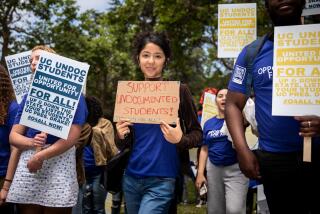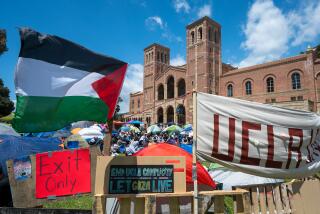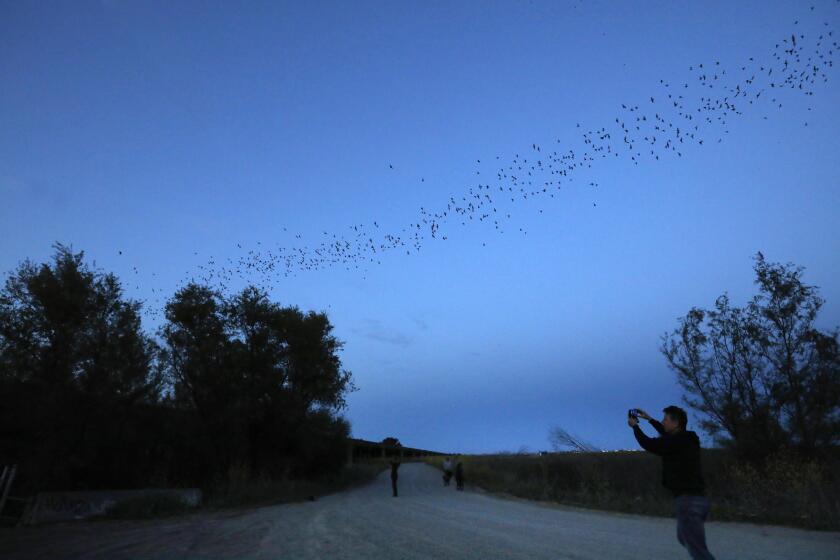Supreme Court rules against UC student group that excluded gays
A University of California law school’s refusal to give official student group status to a Christian society that excluded gays was a reasonable application of the school’s nondiscrimination policy, the Supreme Court said Monday in a 5-4 ruling.
The Christian Legal Society chapter had sued UC Hastings College of the Law, arguing that denial of school recognition and of access to state funding and facilities violated the group’s 1st and 14th Amendment rights to free speech, expressive association and the free exercise of religion.
The society chapter, formed at the San Francisco law school in 2004, required members to forswear “unrepentant participation in or advocacy of a sexually immoral lifestyle,” which it defined as sex outside of heterosexual marriage.
The court’s opinion, written by Justice Ruth Bader Ginsburg, said the law school’s decision was reasonable in that the state-funded university requires all groups wearing its endorsement to be nondiscriminatory.
“Hastings, through its [Registered Student Organization] program, is dangling the carrot of subsidy, not wielding the stick of prohibition,” Ginsburg wrote in the opinion, joined by Justices John Paul Stevens, Anthony M. Kennedy, Stephen G. Breyer and Sonia Sotomayor.
The majority noted that the court was ruling only on the constitutionality of the school’s requirement that groups accept “all comers,” not on broader challenges to the nondiscrimination tenets.
Justice Samuel A. Alito Jr. wrote in dissent that the majority ruling amounted to “no freedom for expression that offends prevailing standards of political correctness in our country’s institutions of higher learning.”
Alito, joined by Chief Justice John G. Roberts Jr. and Justices Antonin Scalia and Clarence Thomas, noted that Hastings has more than 60 registered student groups and that in its entire history has denied registration to “exactly one: the Christian Legal Society.” Alito said the majority gave public educational institutions “a handy weapon for suppressing the speech of unpopular groups.”
Hastings Dean Leo Martinez, who was the defendant in the case, cheered the high court’s decision.
“The college’s intent has always been to ensure the leadership, educational and social opportunities afforded by officially recognized student organizations are available to all students attending public institutions,” Martinez said. “The court’s ruling validates our policy, which is rooted in equity and fairness.”
The Anti-Defamation League hailed the decision as “a ringing affirmation that public universities have the right to implement and enforce policies that reject discrimination by school clubs.”
A lawyer for the Christian group, however, noted that the Supreme Court ruling was focused on the narrow question of Hastings’ all-comers policy, while at least two broader challenges are still making their way through the courts.
“The court did not adjudicate whether the application of nondiscrimination policies to a religious student group is constitutional,” said Gregory S. Baylor, senior legal counsel for the Alliance Defense Fund, a Christian legal organization.
Baylor said cases from the University of Montana and San Diego State University had been on hold pending the Hastings decision.
More to Read
Sign up for Essential California
The most important California stories and recommendations in your inbox every morning.
You may occasionally receive promotional content from the Los Angeles Times.











